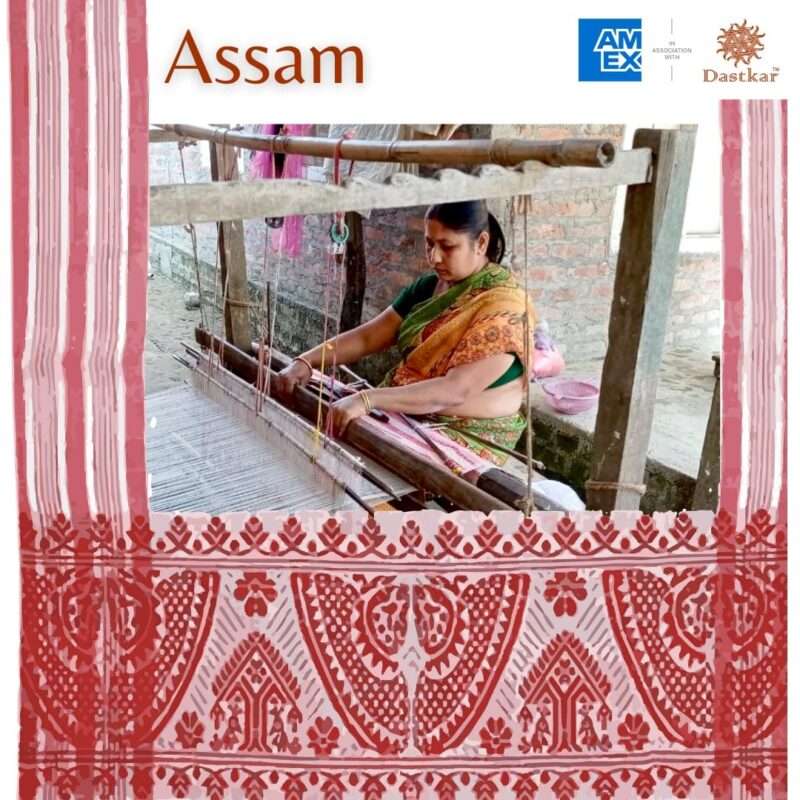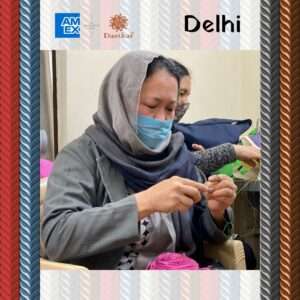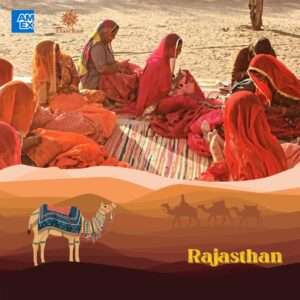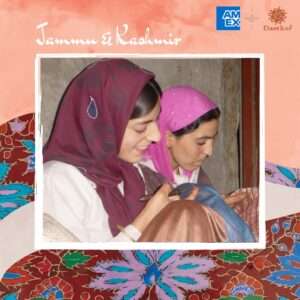The North-East is one of the richest and most unspoiled areas of India, and this includes its crafts. It is also one of the least known. It has the largest number of handloom weavers in the country – most of them women. In every village and district, every home has a loom, still making textiles for their own use and wear. Each community has its own motifs, each woven motif has .its own cultural and symbolic meaning Apart from handloom weaving, the men and women also make pottery, again with their own distinctive shapes and usages. Particularly striking is the black pottery, not thrown on a wheel, but padded and molded by a paddle or hand, and often embellished by woven cane or bamboo handles, and edgings. Cane and bamboo are other regional skills. The cane is cut, sliced, twisted, threaded, and plaited into intricate shapes – ranging from chairs and sofas to the finest delicate jewelry and accessories. Dramatic silver and copper necklaces, belts, and pendants incorporating local stones like turquoise and coral further tell the story of the different tribes and .communities The women of the North East have always been strong community leaders as well as skilled craftspeople. But they have lacked the recognition and support they need. The AMEX DASTKAR grant is a step in redressing that imbalance
One such crafts organization that works towards putting the crafts of the state on the map is Mulberry, it is a registered NGO since1999 which started with an objective to work towards the economic empowerment of Assam’s rural women. Mulberry is now working with over 500 women in 55 villages in 3 districts and has trained more than 2000 women. The tribes associated with the organization – the Karbis, Misings, Bodo, and Demasas, are among the most neglected communities in the area. Their focus is on traditional weaving styles (eg. Bodo weaving) of the tribes they work with. The women look after their household duties and weave in their spare time, also producing handwoven products for men and women. Hundreds of weavers were affected due to COVID-19 in Assam, the sudden closure of marketplaces, led to a decrease in cash flow due to which households suffered. Mulberry aimed at reviving around 50 most affected women weavers in 2 villages; 1 in Kamrup district and 1 in Morigaon. The funds allocated to them by American Express via Dastkar’s Artisan Support Fund aimed at furthering this agenda. As soon as the funds were received, cotton yarn was procured and given to 10 women of each village, and production started immediately. The remaining funds went into paying the wages of the women involved. “The weavers’ condition has improved drastically as they have achieved a sense of self-reliance and we hope to include more women into the project,” says Rakhee Choudhary, Founder of Mulberry.





